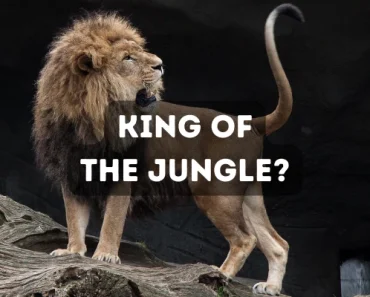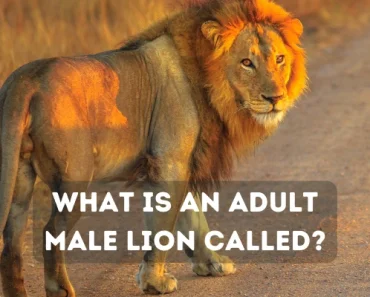If you are given the title of “king of the jungle”, then you must have some pride in yourself, right?
If you rule over every other animal in the animal kingdom and have no predators that hunt you, then you must be prideful right? See where I’m going with this.
Anyway, if you’ve never heard the term “lion pride” or “pride of lions“, I’m about to school you on everything you need to know about lion prides – including where the term “lion pride” came from and what it actually means.
Lions have always been thought of as the kings in their environment and it just makes sense that they would also be associated with pride.
But what exactly is a pride of lions you say? This article breaks down everything you need to know about lion prides and much more.
What Is a Lion Pride?
A lion pride is a family unit or group of lions that can consist of one or several adult male lions, many female lions (lionesses), and their cubs.
Lion prides may include up to three adult male lions and a dozen or more adult female lions, and their cubs.
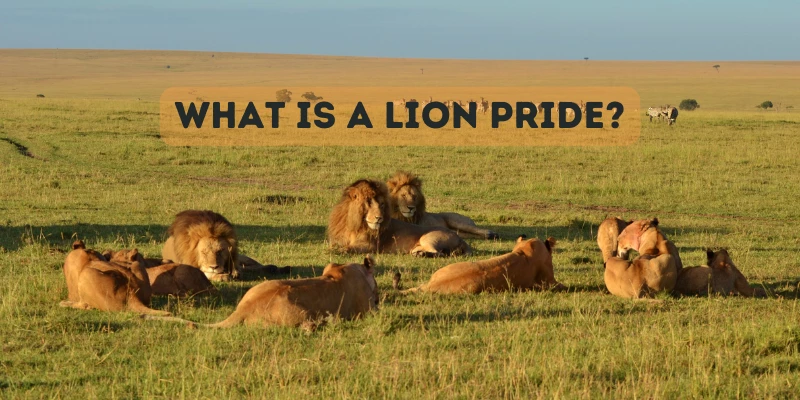
Lionesses are usually the lions that do the hunting while male lions are the lions that defend the pride’s territory and protect the pride.
When female lions make a successful hunt, adult male lions or the pride male get to eat first. Once the male or males have finished, then the females and cubs get their turn to eat.
Lionesses tolerate this because they rely on the males to protect and defend their pride.
Why Is it Called a Lion Pride?
Lions were once considered royal and majestic creatures. After all, lions were given the title of king of the jungle and they don’t even live in the jungle.
The term “lion pride” or “pride of lions” was given to lions because they are seen as regal and majestic animals that were elevated by our society who were intrigued by their look and behavior.
Most animal species have a common noun that is used to describe them. Since lions were seen as royal and elevated, a group of lions consisting of males and females was given the label of “lion pride” or “pride of lions”.
How Long Does a Male Lion Rule a Pride?
On average, an adult male lion will rule over a lion pride for about two years. Being the king of a pride is not easy as there are always other male lions looking to take the reign away.
Male pride lions are on the defensive a lot and have to protect their pride from unwanted outcasts who have been removed from other prides and are trying to find a new lion pride to take over.
Is There Only One Male in a Lion Pride?
There can be only one male lion in a pride, but that doesn’t mean there can’t be more than one. Several adult male lions can share the responsibility of being the pride males and defend the lionesses as needed.
If only one adult male lion is part of a pride, then that male lion will assume the role of king of the pride. If several adult male lions are part of a pride, then all of the males will share responsibility for that pride.
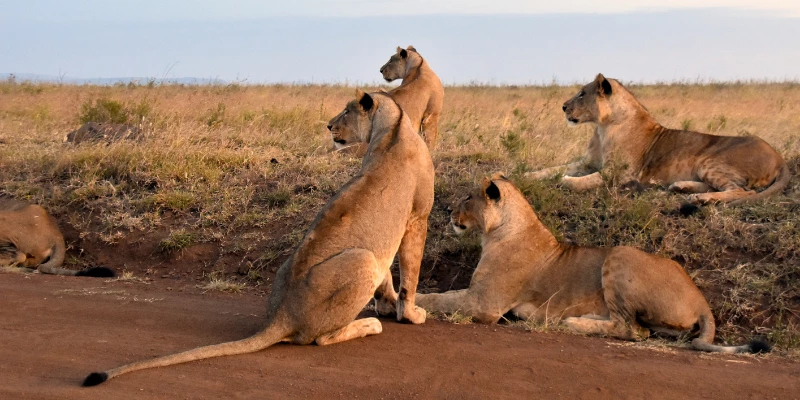
In simple terms, whether there is only one male lion or several in a lion pride, they will all share the responsibilities required to keep their pride safe.
Can Lions Live Without a Pride?
Lions can and do live without a lion pride. Lone lions that have been banished from a lion pride will either venture out on their own or find other adult male lions to form a group with.
This group of adult male lions is called a coalition. Usually, the male lions in a coalition will be relatives – such as brothers or cousins – but that isn’t always the case.
Can Lions Get Kicked Out of a Pride?
Male lions will get kicked out of a lion pride when they reach maturity and are capable of challenging the pride male or males.
Male lions that are kicked out of a pride will usually form coalitions with other male lions that were also banished from their pride (typically relatives that were kicked out together but not always).
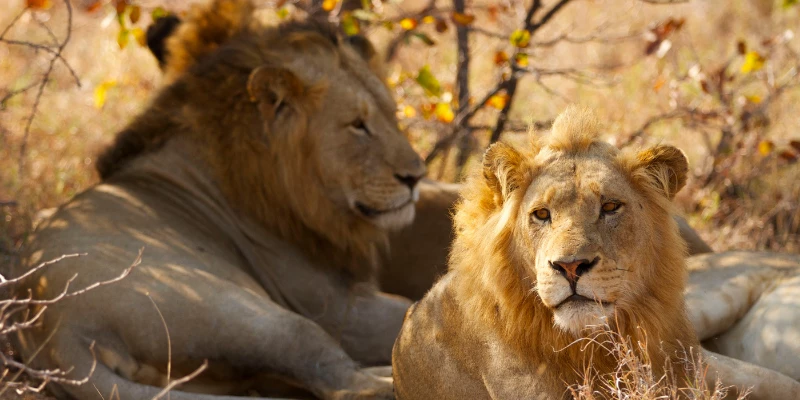
Why Do Lions Get Kicked Out of a Pride?
Lions can get kicked out of a pride for several reasons. Lions are expelled from prides if they are no longer capable of fathering cubs.
Adult male lions are also banished from a pride when other adult male lions take over the pride.
What Happens if a Lion Pride is Taken Over?
If a lion pride is taken over by other adult male lions, the intruders will attempt to kill any offspring of males that isn’t theirs.
The current male lions in the pride will also be killed or removed from the pride.
When prides are taken over by other male lions, they are just interested in the lionesses for their own offspring and aren’t interested in raising another lion’s cubs.
Recap
To recap, a lion pride is a group of lions that consist of at least one adult male lion (some prides have up to three) and can have many adult female lions and their cubs.
There is always a ruler over the pride, whether that is just one adult male lion or several that share the responsibility of protecting and defending their pride.
Male lions that reach maturity and can challenge the pride male will be banished from the pride. Pride males that can longer impregnate lionesses will also be banished from the pride.
Pride males typically have a rule of around two years as king of their pride. There is no set time limit but this is the average time before another male or group of males challenge the pride male (or males) and take over the pride.
If other adult male lions take over a pride, they will kill any cubs they can catch that aren’t their own. Other adult males will also be killed or banished from the pride if they were not part of the group that did the takeover.
Lion pride is thought to have become associated with lions because they were seen as majestic and elevated since they rule over their kingdom and have no natural predators.
You should now have all the info you need about lion prides. I hope this article was informative and intriguing. If you liked this one, you are sure to like more – click here to read more articles.
